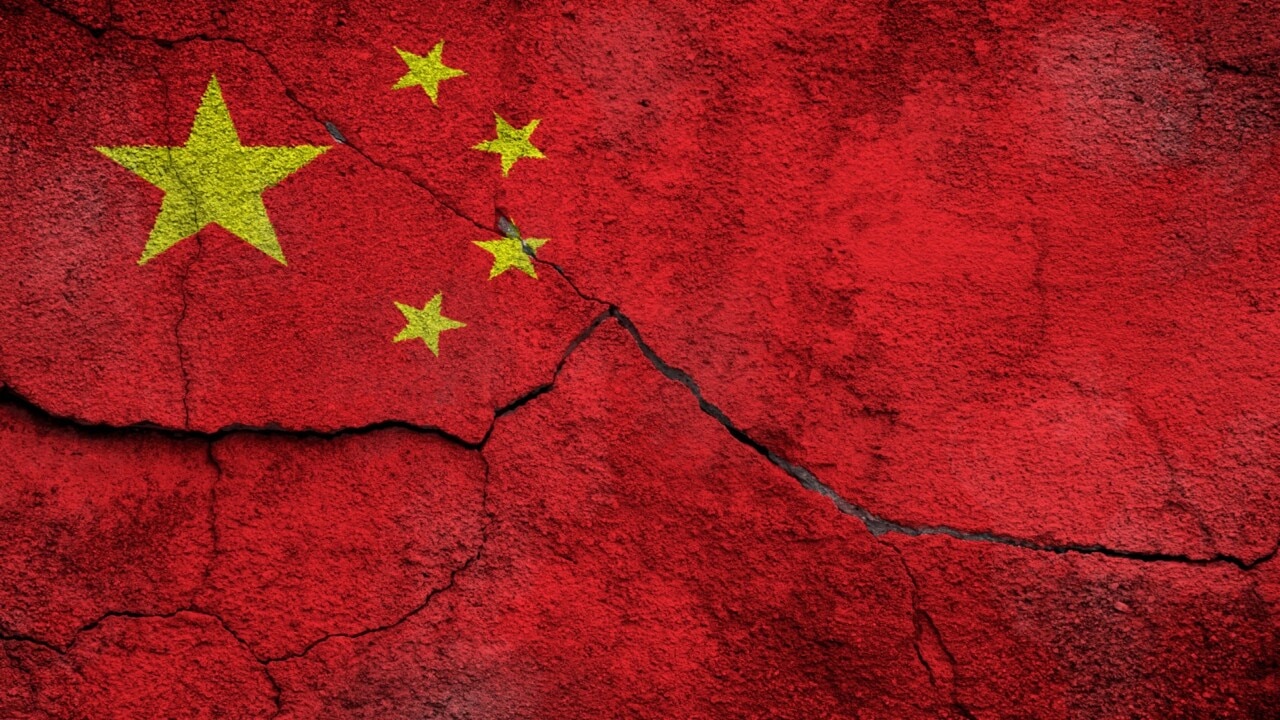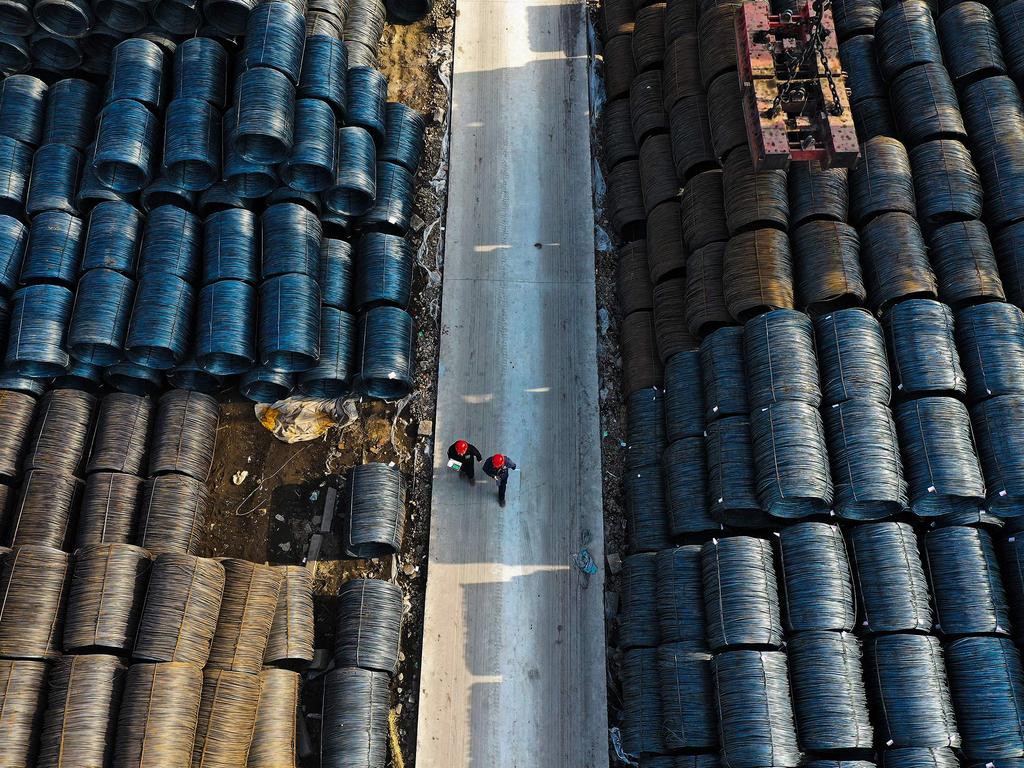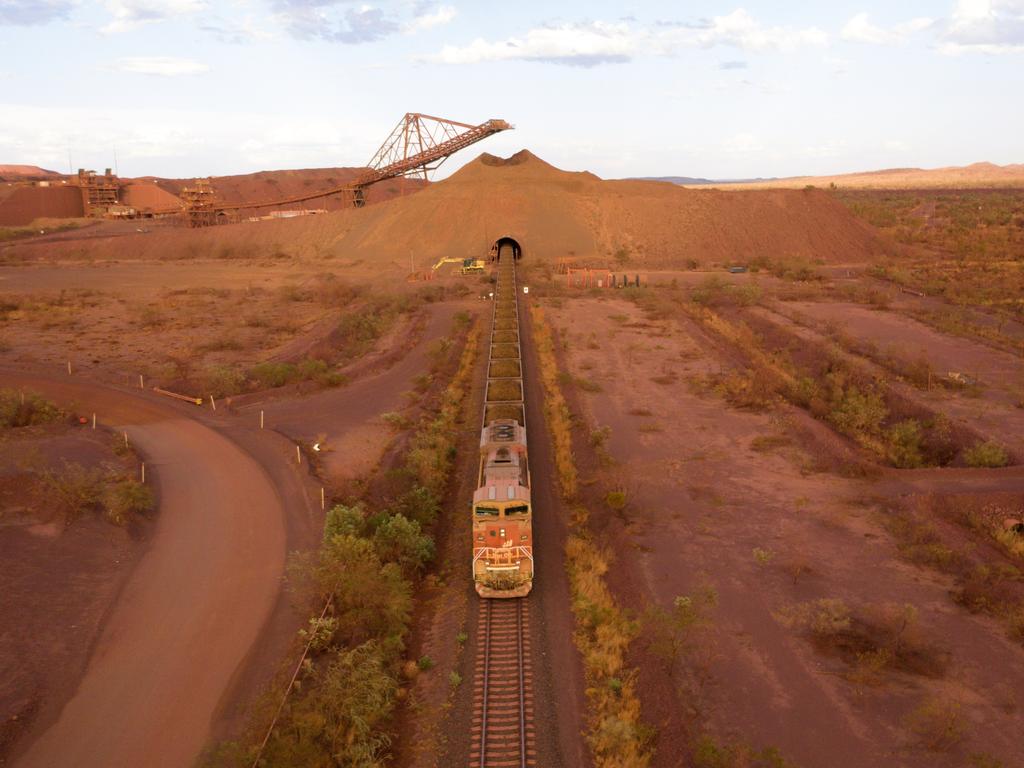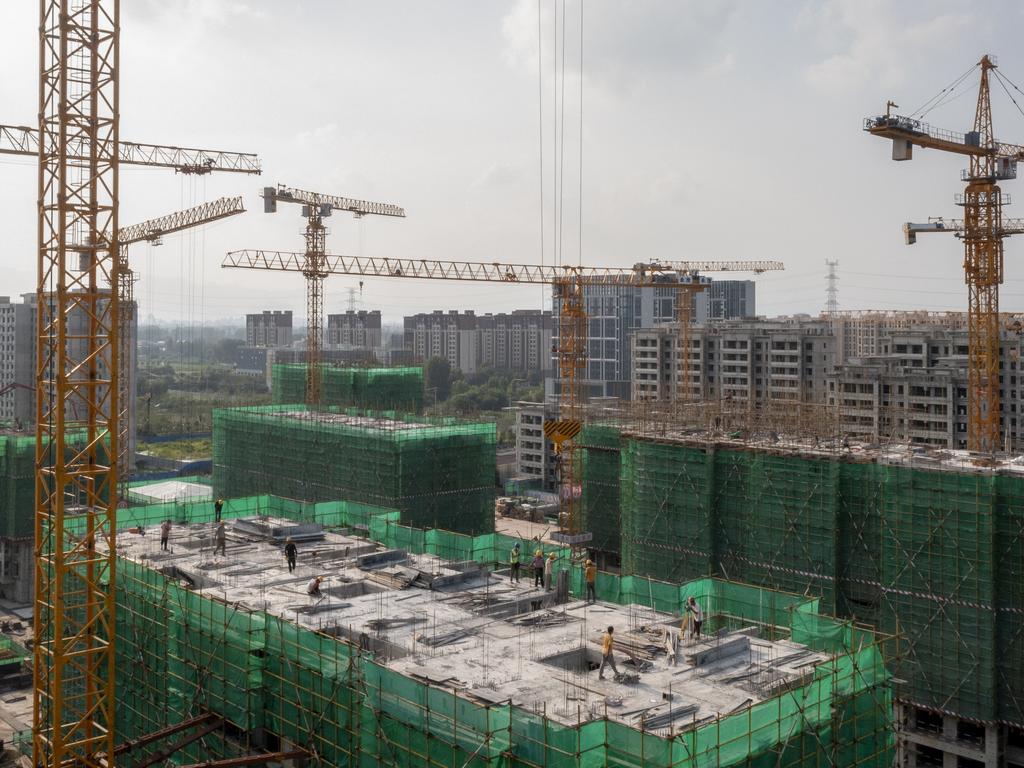China’s ‘superglut’ to crash iron ore ‘on every global shore’
It’s worth $136 billion to the economy annually but Australia’s cash cow looks set to “crash upon every global shore”.

Steel yourselves: Hopeful iron-ore price movements amid booming Chinese exports represent the calm before a perfect storm, warns a leading Australian analyst.
“A superglut is mounting in China and will crash upon every global shore in a relentless tide over the next five years,” argues MacroBusiness chief strategist David Llewellyn-Smith.
Treasurer Jim Chalmers at the weekend warned government analysis anticipated a $9 billion hole in the national budget over the next four years as tax income from “digging and shipping” iron ore evaporates.
China is the world’s largest steel producer, and iron ore is its core ingredient.
But the massive industry is struggling after the dramatic collapse of the local property construction market, which has led to a 13.5 per cent fall in steel production over the past 12 months.
Australia is the world’s largest exporter of iron ore. It contributed about $136 billion to national revenue in 2023.

A new Department of Industry, Science and Resources report warns this will likely fall to $83 billion in 2028-29 as Chinese demand both dries up and is redirected to “friendly” sources.
“You can see the drop-off in the iron ore price,” Treasurer Chalmers told the ABC Insiders program Sunday. “You can see why this is one of the reasons why we expect much, much smaller revenue upgrades in the budget than we’ve become accustomed to on the last couple of occasions,”
And that’s seen iron ore prices come off record highs.
It had been selling for about $US130 a tonne in January. It’s recently been trading in the $US90s
But analysts warn an apparent rally this week may not be built on firm foundations.
Instead, it appears a recovery in Chinese iron ore stockpiles (which had fallen to 20 per cent below average in November) is primarily based on speculation Beijing will be forced to intervene to support its manufacturing industry. And that a surge in cheap Chinese steel exports will be sustained.
What goes around, comes around
Llewellyn-Smith says everything changed for China’s steel industry when Chairman Xi Jinping took power. He immediately set about “rebalancing” the Chinese growth economy towards one based on more sustainable consumer consumption.
“The 2012 Xi Jinping pivot caught big mining with its pants down, as it invested heavily in the notion that China would grow apartments forever,” he writes.
Chinese steel exports soared as its enormous production capacity sought alternative markets. “In the years 2012–2016, exports went nuts as steel prices kept falling,” Llewellyn-Smith explains.
This was good for Australia.
Its iron ore was cheaper to import than that sourced from China’s own poorer-quality mines.
Then, amid a shaky 2015 economy, the Chinese Communist Party intervened in monetary policy to breathe fresh life into its construction industry.

“This final panic reversal to the old economic model of building empty apartments blew off Chinese steel output for another six years. It rescued Chinese steel prices and helped iron ore supply to work off its excesses,” he argues.
“The problem is the last great 2016-2021 blowoff so bloated developer credit, corruption, and over-construction that today’s property crash is past saving.”
Instead, Chairman Xi has recently begun stressing a focus on “high-quality growth” – largely interpreted as meaning a doubling-down on state investment in the low-emissions energy transition: electric vehicles, batteries, solar panels and wind turbines.
And while that’s great for Australian copper, it’s not good news for iron ore.
Crash – or slide?
Llewellyn-Smith says China’s property market – and therefore its construction steel industry – has been backed into a corner such that any further stimulus measures from Beijing can only slow its decline.
“All things equal, iron ore plus coking coal will go down with it,” he concludes.
But not all analysts agree on how this will unfold.

Resource and renewables consultancy Wood Mackenzie expects global iron ore trade to increase an average of 2.1 per cent per annum – despite persistent uncertainty.
“There is no change to our view that prices will trend lower over the next five years in anticipation of easing supply constraints and moderation in Chinese demand,” its March Global Iron Ore Strategic Planning Outlook report states.
“We anticipate a slight loosening of the market balance in 2024 compared to the last few years. Our view is that the price for 62 per cent Fe (iron ore) fines CFR (cost and freight) China is poised to average around US$110 a tonne in 2024 and US$100 per tonne in 2025.”
Last month, the China Iron & Steel Association called on steel mills to “reduce production intensity” after calling major producers to Beijing for talks with the Chinese Communist Party.
The “Two Sessions” sitting of China’s main representative bodies did not produce the economic intervention many had anticipated.
And China’s Third Plenum – an assembly of the Chinese Communist Party’s ruling Central Committee – is strangely overdue.
It’s the forum where the Communist Party is supposed to detail the agenda of its new General Secretary as they begin a new five-year term of office.
It was supposed to happen in October last year.
Chairman Xi took the top job for the third time last year. Traditionally, General Secretaries are limited to two terms of office.
And while Xi told a visiting delegation of US businessmen last month that he was “implementing a series of significant measures to comprehensively deepen reform, continuously build a first-class business environment characterised by marketization, rule of law, and internationalisation,” Beijing is yet to detail what practical form this will take.
Jamie Seidel is a freelance writer | @JamieSeidel






